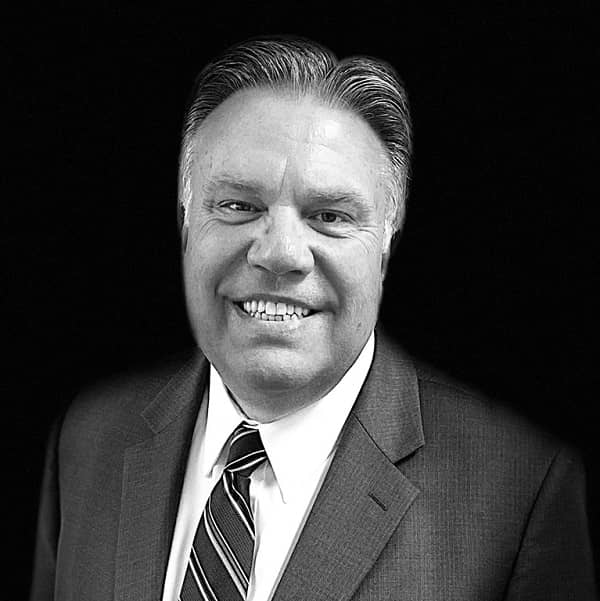
When my father-in-law, Leroy Gunnell, passed away following surgery, one of the intensive care nurses noticed our family's reaction in contrast to a family down the hall whose loved one had just passed: "In one room there was peace and perspective, and in the other room there was despair and hopelessness." Our family felt sad because we would miss our father in this life, but in our Christian faith we felt confident in the continuation of life and the promised resurrection. The family down the hall believed the separation of death was final.
Many people with high ideals and unselfish motives ask why they need Christianity. Noted Christian writer and minister George MacDonald acknowledged, "The world can do almost anything as well as or better than the church." He continued, "You need not be a Christian to build houses, feed the hungry, or heal the sick. There is only one thing the world cannot do. It cannot offer grace."
The core of Christianity is the Atonement of Jesus Christ, who suffered and died on the cross so that we might live. As we better understand this core and more personally experience in our hearts the effects of Christ's sacrifice, we are blessed with an inner awakening that connects us with our Savior. Remember His words: "I am come that they might have life, and that they might have it more abundantly (John 10:10). The 7-day Christian can experience that abundance with the Savior's grace every day of the week. Christ offers us life after death, life after sin or disbelief, life during trials, and life in service.
Life After Death
As I spoke at my father-in-law's funeral, I told about the nurse who noticed our family's perspective at his passing. I reminded those attending that everyone who knew Dad understood that he had lived and taught this truth throughout his life: that Christ's resurrection gives everyone an opportunity to continue living after death. This knowledge can profoundly affect our loves, our choices, our priorities, and our ways of reaching our potential.
I recently heard a young woman say softly as she ended a funeral tribute, "I'll be seeing you, eternal friend."
Life After Sin or Disbelief
Individuals experience different challenges, and many struggle with sin and/or disbelief. But Christ knows who needs and will receive Him.
The Bible reminds us of Saul of Tarsus, who spent an early time of his life persecuting, threatening, and imprisoning Christians. As he traveled the road to Damascus to continue this evil, "suddenly there shined round about him a light from heaven: And he fell to the earth, and heard a voice saying unto him, Saul, Saul, why persecutest thou me?" (Acts 9:3-4).
Blinded during the vision, Saul finished his journey seeking for someone to help and teach him. His sight restored, he accepted the Christianity he had despised, repented, was baptized, and began his ministry. Having been one of the vilest of sinners, with his name changed to Paul he became one of Christianity's most devoted, courageous, and long-suffering advocates.
One of Christianity's most devoted, eloquent, and most read and quoted advocates, Clive Staples (C.S.) Lewis (with the personally chosen name change to Jack) had a problematic (though not sinful) youth. At age 15 he rejected his childhood Christianity to become an atheist: an angry teen, then a proud skeptical college student.
Jack's serious relationship with Christianity began at Oxford University with a close friend and firm believer who argued his points persuasively—fellow scholar and author J.R.R Tolkien. Jack's conversion came not on the road to Damascus, but riding a bus on the road to a zoo. His experience was less public and dramatic than Paul's, but just as impactful on his life.
I know very well when, but hardly how, the final step was taken. . . . When we set out I did not believe that Jesus Christ is the Son of God, and when we reached then zoo I did. And yet I had not exactly spent the journey in thought, nor in great emotion. "Emotional" is perhaps the last word we can apply to some of the most important events. It was more like when a man, after a long sleep, still lying motionless in bed, becomes aware that he is now awake.
Both of these incredible Christian leaders were converted miraculously, impacted Christianity miraculously, and never turned away.
Life During Trials
The 2020s have not been easy. Throughout the world, natural disasters, including fires and floods, seem to worsen daily with climate change. New illnesses emerge as quickly as vaccinations and treatments can be found for those we already have. Violence occurs as far away as distant nations and as close as local schools, holiday parade routes, and neighborhood grocery stores. Media of all sorts are filled with verbal and visual hatred.
Christian leader Jeffrey R. Holland began a statement to a worldwide audience, "When disappointment and discouragement strike," to which he quickly added "—and they will." All people and all peoples have trials, as different in nature and context as those who struggle with them.
At age 62, my mother had successful surgery for breast cancer. Anxious that the cancer might return, she wrote, "I vow that ordinary days, delivered every morning just on time, will be received with greatest gratitude and constant joy!" She treasured these words of the Savior: "Observe all things whatsoever I have commanded you: and, lo, I am with you alway[s] even unto the end of the world" (Matthew 28:20).
Though blessed with a full recovery, Mom did not expect to outlive my father. But her most severe trial came as he passed away. Her consolation was in Christ's sacrifice and in her knowledge of the eternity of life. About a year after Dad's death, a friend asked my mom, "When did you feel like Christ stepped in and made your burden more bearable?" Mom replied, "When didn't He? Was there ever a time when He wasn't shouldering the whole load?"
Life Through Service
Christian leader Dieter F. Uchtdorf related the experience of "Jane," who from the age of 3 was beaten and belittled, mocked and threatened until "she hardened herself to the horror of her reality" with numbness and resignation. At age 18, after attending school far away from her abuser, Jane discovered hope and joy in accepting Christianity. As she received medical help as well as counseling, Jane realized that she had a choice. She could "lash out in anger, hurt, or cynicism" or "with God's help she could be healed." She chose healing. With God's grace, she chose to spend her life helping others. As a schoolteacher, Jane gives her love to strengthen and inspire children as she helps them (and everyone else around her) understand their worth.
Jane's road, though not easy, was possible. Amy also reacted to her own suffering with loving service. As a medically fragile child, Amy spent a lot of time in hospitals, with transplant surgery at the age of 10. As an adult, Amy became a child life specialist, working in hospitals as a loving friend and counselor to seriously ill and injured children and their parents. Despite her own lingering fragility, Amy went to the hospital before 7:00 a.m. each time one of "her children" was wheeled to surgery, holding the child's hand. The Savior has guided her hand and her heart.
Melinda found opportunities for Christian service working in a cafeteria line. Her earlier job, involving direct service, had inspired her; dishing food seemed too impersonal. But 7-day Christians are determined and creative. Recognizing that many of the individuals coming through the line were struggling with personal insecurities, Melinda expanded her collection of inspirational quotations to print as individual notes, which she slipped onto cafeteria trays. Smiling faces in front of the vegetable offering told her that her efforts were making a difference.
Knowing the importance of loving and serving their "neighbors" on this earth, 7-day Christians are well aware that the world is full of incredible people who are not Christians. But we do appreciate blessings we receive from the core of our Christianity, including our understanding of life after death, life after sin or disbelief, life during trials, and life with service. Our Savior's grace uplifts us, strengthens us, teaches us, and inspires us as we strive to be our best selves, as He knows we can be.
12/8/2022 9:38:03 PM





